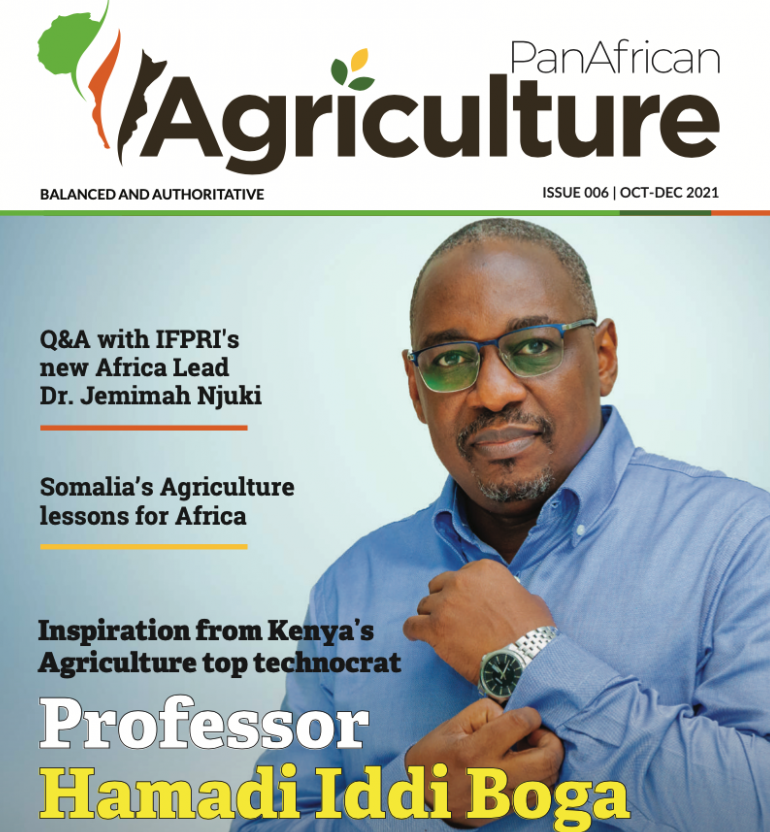Our current edition has a special focus on the role of gender in transforming the agricultural landscape in Africa. The millions of women engaged in agriculture across the continent- comprising of over 40 percent in sub-Sahara Africa-are a heterogeneous group with different realities, opportunities and challenges.
Today, their roles are changing as part of the constantly evolving social, environmental, cultural and economic contexts they live in. This complexity must be accounted for in design and implementation of interventions if there is to be meaningful impact from agriculture. PanAfrican Agriculture gets a rare moment with the new IFPRI lead for Africa, Dr. Jemimah Njuki, and taps into her wealth of knowledge on where the compass must point to address social economic disparities and ensure the participation of women and youth as key drivers of agricultural growth.
Further, we get a rare opportunity to engage with Kenya’s top agriculture technocrat, Prof. Hamadi Iddi Boga, whose legacy in various phases of his career remains enviable. The professor of Microbiology has set off admirable careers of many Kenyans now making a mark in different parts of the world. He introduced needs-driven courses in institutions of higher learning and has steered the completion of policies and initiated programs within Kenya’s agriculture docket, that remain pivotal in Kenya’s agricultural growth.
For decades, Somalia’s agriculture has been rocked by a fragile and degraded natural environment, punctuated by intervals of drought and floods. This coupled with poor infrastructure and interruptions in government have translated into lost opportunities to reconstruct the agricultural sector for the nation with the longest coastline in Africa’s mainland. In the recent past, the agricultural sector is beginning to reap the benefits of dedicated Somalis and partners who are determined to restore Somalia’s agriculture. This inspiring feature serves as a lesson to other African nations on what dedication, patriotism, meaningful partnerships and well thought out strategies can do to any nation, no matter its past. Lastly the fourth quarter played host to the largest food conventions globally notably the UN Food system summit and the African Green Revolution forum AGRF. Both witnessed renewed commitments toward addressing food insecurity in Africa.


